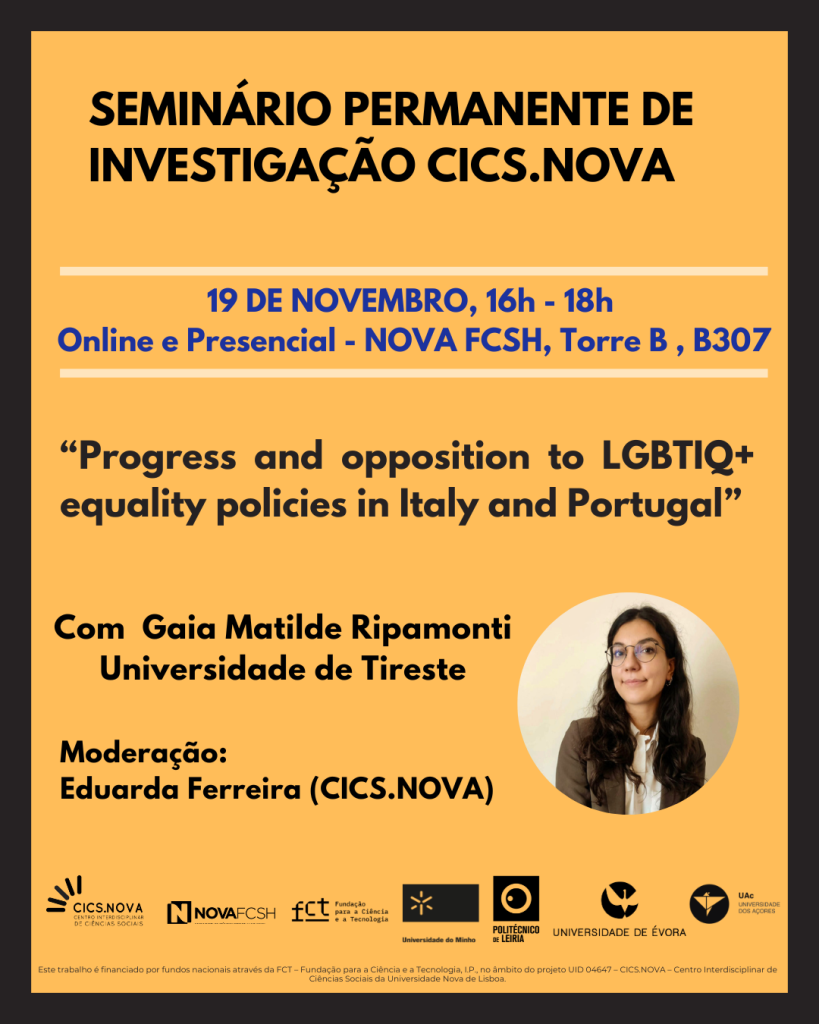Tema: “Progress and opposition to LGBTIQ+ equality policies in Italy and Portugal”
Moderação: Eduarda Ferreira (CICS.NOVA)
Link para participação online: SEMINÁRIO PERMANENTE DE INVESTIGAÇÃO CICS.NOVA – “Progress and opposition to LGBTIQ+ equality policies in Italy and Portugal
BIO
Gaia Matilde Ripamonti is a Postdoctoral Researcher in Political Science at the University of Trieste. Her research interests include intergovernmental relations, regional politics and policy, and gender studies. In the latest field, she is currently working on the right to abortion in Italy and the LGBTQIA+ policies in Italy and Portugal. Her work has been published in Regional & Federal Studies, the Italian Political Science Review, the Italian Journal of Public Policy, Contemporary Italian Politics.
ABSTRACT
Since the adoption of Council of Europe Recommendation 2010/5 on measures to combat discrimination based on sexual orientation or gender identity, LGBTIQ+ equality policies have been gradually introduced into the agendas of all EU countries. These policies have gained visibility but have also sparked heated debates. Policies on sensitive issues such as the rights of same-sex couples, sexual orientation and gender identity, involve values and religious beliefs which usually transcend the division between left and right. Even if so-called progressive parties tend to be more favourable than conservative ones, much also depends on the national context in which they operate. There is still significant variation in LGBTIQ+ policy trajectories in the EU. Regarding Southern Europe, the ILGA’s Rainbow Map (2025) ranks Spain 5th with 77.97, Greece 7th with a score of 69.18, and Portugal 11th with 69.99; meanwhile, Italy ranks 35th with 24.41. This research aims to explain the differences between these countries and Italy’s backwardness. In particular, we will focus on the policymaking process (legislative proposals, initiators, process duration and votes) in Italy and Portugal over the last 20 years. Among the factors affecting the approval of LGBTQIA+ friendly legislation in parliament, we expect the content of the legislative proposals and their relative importance to the involved actors, together with their stance on the issue, to play a significant role in the policymaking process and its outcome. Can these factors explain the variation between the two countries?

Seminar
19 November 2025
16h - 18h





